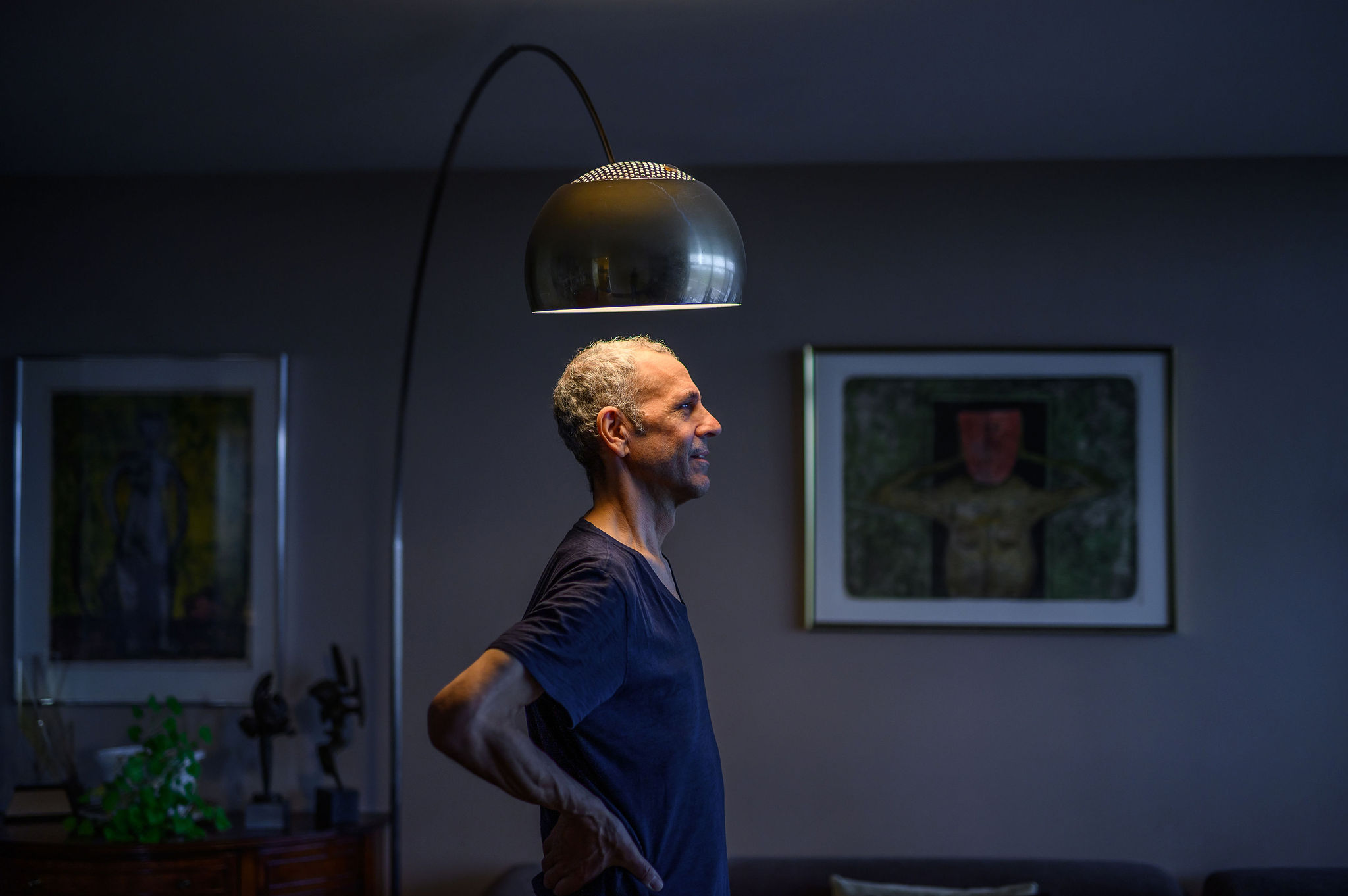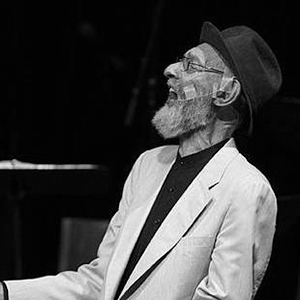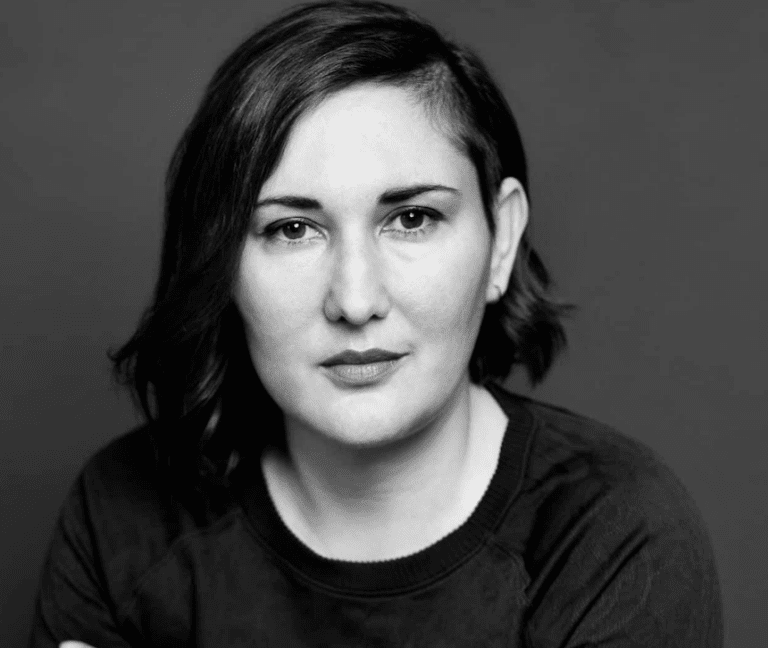Spotlight: Daniel Brooks
Coming to Luminato and Canadian Stage: “The Full Light of Day, written by Daniel Brooks.” But not directed; that’s a billing that may surprise you. Brooks is a writer, an actor and a director, and in the course of a substantial career (he’s now sixty) he has often combined at least two of those roles on a single project. But it’s as a director that he is best known, so one doesn’t expect him to hand over the staging of one of his own scripts to someone else, even if the someone else is Kim Collier.
But it makes sense. The Full Light of Day was inspired by a movie, Yasujirō Ozu’s 1953 Tokyo Story. Collier’s work for the Electric Theatre Company in Vancouver has established her as one of the mixed-media wizards of the Canadian theatre. (The other, working from a different sensibility, would be Robert Lepage.)
The Full Light of Day is described in its official blurb as “part theatre, part film.” That is not the kind of theatre that Brooks as a director has done. His work has always had a strong visual stamp but it has generally been minimalist, precise. Which isn’t to deny that Brooks has had a lifelong interest in film. (The bookshelves in the Toronto apartment where I interviewed him are full of books on film.)

“I’ve always been devoted to film,” says Brooks. “I’m more likely to read a screenplay or watch a movie than to read a play.”
He originally wanted to re-adapt Tokyo Story as a film: a movie based on a movie: “I’d wanted to write a screenplay. And I thought that Ozu’s film could withstand the transposition to a different culture and a different time; it was exciting to have him as a guide. I thought about it for a couple of years. Then I was travelling in India, and I made a writing retreat for myself in the forest. I started writing. And within three days I was bored out of my mind. The task of taking an existing structure wasn’t interesting me.”
It seems that what did get to him was an idea: the idea of a society changing, fast, into something else, something perhaps barely recognizable. This obviously happened in Japan after the Second World War; he saw it happening, perhaps not quite as dramatically, in his own country, his own city: “I was born and grew up in Toronto. You could drop me off blindfolded now in any part of Toronto, and half the time I wouldn’t know where I was.”
He waxes nostalgic about the Henry Moore statue outside the Art Gallery: “We could eat a sandwich sitting on it. Used to play with my kids there… It’s not the same as Japan of course; we haven’t been invaded by another culture.” Or have we?
“The story takes place in a future city,” say Brooks. “I’m interested in writing about a world in a process of transition and upheaval. I do feel we’re in a time of incredible transition; the presence of technology in our lives is very much a part of that.”

With these things in mind, he wrote a script. “The story takes place in a future Canadian city. Kim Collier read it and asked if I’d be interested in doing it as a film/theatre hybrid. And when you’re given the opportunity to have someone produce something you’ve written – it’s hard to say no.”
There are other reasons for his not wanting to direct his own script. “As a writer, I hear very specific voices. I don’t believe that’s very helpful to an actor, but I become that kind of director when I’m directing my own work. And there could be resonances that I don’t hear; another director could find them. Besides… directing’s hard. I love directing, but I wanted to be more available as a writer.”
Artists & Critics
My own first experience of Brooks in the theatre had him in a multiplicity of roles that presented as one. The show was The Noam Chomsky Lectures which he devised and performed with Guillermo Verdecchia in 1991. It lives in my memory for its pungency, and for the more specialized reason that it’s the only time I’ve ever been addressed by name from the stage during a performance. I had written in the Globe and Mail that I wondered, at a time when short theatre evenings were in vogue, if I would ever again see a play with an intermission. This play had one, and when it arrived Brooks sang out, as he and his collaborator departed for their dressing-rooms: “Yes, Mr. Cushman, this is an intermission.”

“Just a little joke,” Brooks explained, when I reminded him of it all these years later. Actually I’d felt rather flattered; I certainly got off lighter than some of my colleagues, who were called out, also by name, in what Brooks describes as “a play about political power” and which, at these points, delved into what he (rightly) describes as the “power-relation between artists and critics.”
“If a critic takes issue with something I’ve done without perhaps considering deeply enough what my thinking might have been, it can have great influence on my life and on the life of the play, and I can have no recourse to address it. That was part of my interest in addressing the critics in Chomsky; I wondered what would happen if we reversed the process.” Which I would say it did; the relation during a performance between the stage and the audience is a power-relationship, and it’s those on stage who have the power. Admittedly it may not always feel that way to the performers, but the fact remains: they’ve rehearsed, we haven’t. Brooks does add, regarding critics: “You [the artist] want to be engaged with; when I’ve received thoughtful negative reviews, it hasn’t hurt.”
Directorial successes
He’s certainly had no shortage of thoughtful (one hopes) positive reviews, especially as a director. In 1999 at the Tarragon Theatre he directed Goethe’s supposedly unstageable Faust, an epic that he amazingly brought off with only five actors. “I used to be fearless,” he said of the choice. “Actually having more actors would have made things harder for me. I was young, and learning a lot.”
Having found “a great translation” by the American scholar and poet Randall Jarrell, “I convinced Urjo [Kareda, artistic director of the Tarragon,] to chip in for a workshop of this seminal piece of Western literature,” and a full-stage production followed. It was spellbinding with Randy Hughson unconventionally cast as Faust, bringing off among other things a speech lasting forty-five minutes.

That same year Brooks directed his first show for Soulpepper. This was in that company’s second season, the one that established them firmly at the heart of Toronto theatre. They hardly put a foot wrong all that year but even in that context Brooks’ production of Samuel Beckett’s Endgame stood out.
In subsequent Soulpepper seasons he did equally well with Harold Pinter’s Betrayal and, though this was more controversial, with Racine’s Phedre. In this one he used harsh abrupt changes of lighting to underline the tragedy’s reversals of fortune. Purists objected, but it seemed to me a wholly legitimate device in an English-speaking production, helping to evoke the remorseless cruelty, the sense of omnipresent trap, a French performance might be able to summon by words alone.
There was also a studio production of Chekhov’s The Cherry Orchard, cast with members of the Soulpepper academy, that never got promoted to the main repertory: regrettably, I think. Cheekily, it did away with the play’s servants and hangers-on: that is, with half the characters. All that remained were the Ranevsky family, owners of the orchard, plus the “perpetual student” Trofimov and the peasant millionaire Lophakhin, the last two being especially well played by Gregory Prest and Brendan Wall; Wall made Lopakhin’s mixture of exasperation and embarrassment more painfully vivid than any other performance I have seen. The story remained surprisingly complete; the production (in modern dress) only had to cheat once, when one of the axed characters had to be addressed by telephone. Brooks said he, “loved doing it, loved doing it with that group.” He hasn’t done any other Chekhov, and he wants to.
Brooks & Collaborators
A tough elegant economy has been a hallmark of Brooks’ productions. It extends to his work on new plays, notably in his long collaboration with actor and playwright Daniel MacIvor. He’s been intimately involved with the creation of MacIvor’s solo tours-de-force.

“Daniel will come to me with an idea or a title, or – increasingly over the years – with no title at all. We start talking, I start writing down what he’s saying, feed it back to him.” Sounds like the classic collaboration routine, as imprinted by Hollywood: one writes, the other paces. Then “Daniel takes the stuff away to structure and write it. It’s very informed improvisation; the longer we work, the more informed the work is. Often when we’re in front of an audience — we’re still working.”
Brooks has also been deeply involved in developing and directing the plays of John Mighton, and especially in the creation of his finest — and one of Canada’s finest — Half Life, a play about old age and how it affects both the old themselves and the younger, mostly middle-aged people, around them. Brooks calls it “a beautiful play” and says that its gestation was “an ideal process in many ways.”
It helped that one of the actors, Diego Matamoros, was “involved from the beginning — he offered many dramaturgical suggestions.” Matamoros has also acted in nearly all of Daniel’s Soulpepper productions; his Clov, the shuffling grumbling attendant, in the 1999 Endgame was what first convinced me he was a great actor. Daniel also helped create Matamoros’ solo show The Aleph, part autobiography, part adaptation of a story by Jorge Luis Borges.
Daniel is “fastidious about who he works with,” Matamoros told me. “In rehearsal he’s very quick to say ‘no’ to things. His points are always very strong and very valid. He gets to the crux of the matter.”

In an email, Matamoros added: “Daniel is very good at encouraging you to work toward something he himself seems to be very passionately reaching for and that if you get there (or thereabouts) you have found something very new and different and special together.
“He always encourages unusual and original approaches so that you never feel you’re acting anything in an obvious or clichéd way. He’s a master of detecting false notes in anyone’s acting and I always feel that if Daniel thinks it’s good then it really is.
“Simplicity is key, but the difficulty always lies in finding the greatest degree of detail and truth and he’s never been shy to tell me when he didn’t really believe what I was doing and/or saying.
“He’ll have a big grin on his face after running a scene, and then after a little pause he’ll say something like: ‘Well, let’s see how we can make that all work a little… better…’ Then he’ll give many specific detailed notes, suggestions, etc. all very doable and clear.
“He has a great sense of humour when he works, and clearly adores working with actors. I think he always wants to act more himself, but often doesn’t get a chance to as he’s always so busy writing, directing, and with dramaturgy on others work. He’s also tremendously insightful with design, stagecraft and lights.”
Strengths & Chaos
That visual sense is a consistent strength; even with productions of Brooks’ that I haven’t liked – such as his Stratford Oedipus and, to a lesser extent, his Soulpepper Doll’s House — I have had to acknowledge the exactness of their movement and their creation of a coherent and unified world. As he puts it himself: “I’m always looking for precision – and for spontaneity in each moment.”

His range, too, is greater than one always remembers. It’s a shock to recall that he directed the major Toronto staging of The Drowsy Chaperone: a production that obviously lacked the choreographic dazzle of the subsequent Broadway version, but that had more charm and was, I think, funnier. Like most of Brooks’ work, it had a style. His association with this musical spoof may be traced back to youthful collaborations with its author, Don McKellar. The two of them, with Tracy Wright, presented shows distinguished, he says, by their “madness” and “chaos.”
“Don did most of the writing, I produced and directed, Tracy had a finger in everything. We liked doing really rough shows, unpolished. We mostly took an existing script and deconstructed it.” One of those unwitting source-plays was the Betrayal that Brooks would later direct for real.
The Future
So which of his talents is he likely to concentrate on after The Full Light of Day?
“I’m thinking about writing something, a play that I might perform,” says Brooks. “Not necessarily a one-man play; I don’t know if I want to be alone on the stage, but it’s possible. MacIvor’s been doing solo shows since he was an adolescent. But it is something of a first-person narration that I’m interested in.”

I asked him how far he thought a company was defined by who was running it. He himself was the second artistic director of Necessary Angel: after Richard Rose, before Jennifer Tarver, herself now to be followed by Alan Dilworth. He said that the company has always been “artist-driven,” but admitted that that’s “a loose definition.”
He then said “there’s a lot of young — well, they’re aging by the day — talent, but they’re a little, as far as I’m concerned, caught up in their own uninteresting ideologies around race and gender. That’s not to say that race and gender aren’t ever worthy topics, but I’d like to see them doing work a little more accessible, a little more something” — he paused and then found the word — “a little more human.”










Comments